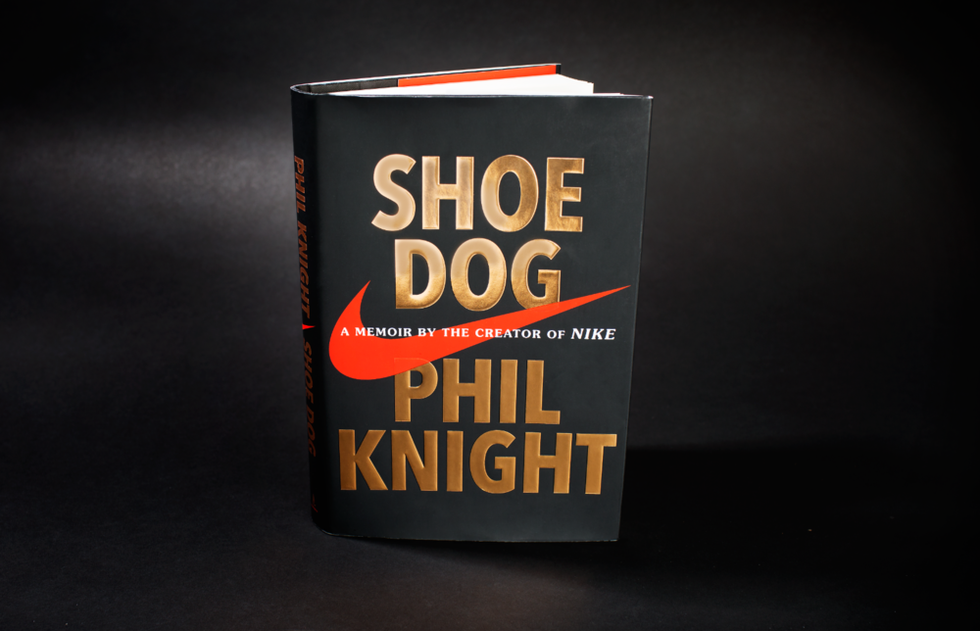Phil Knight, the american businessman, entrepreneur, and philanthropist released his memoir Shoe Dog in April of 2016. Knight’s work was met with mostly positive reviews and he was lauded for his insight into the journey that made him worth $24 billion dollars. Nike’s Chairman Emeritus was insightful, engaging and honest in the 400 page memoir that described the trek from Blue Ribbon Sports to Nike.
My absolute favorite part about Knight’s writing was the transparency. The level of detail that he provided in his memoir is outstanding. Knight was very honest about the entire journey from step one to its current state. Knight went into vivid detail about the trials and tribulations that he and co-founder Bill Bowerman faced as they attempted to grow and expand the initial company. Knight detailed how one of the company's first offices, when there were only three employees in Blue Ribbon sports, had broken windows. Knight describes how this made for some uncomfortable winter days and states that “We couldn't to fix the broken glass in the windows, so on really cold days we just wore sweaters.” This level of detail allowed me as the reader to understand the tenacity it took to preserve through the times when even Knight couldn't imagine the success he would achieve. The transparency and honesty that Knight provided allowed me to develop an affinity for him and his story from the beginning, leaving me rooting for Knight, Bowerman and Blue Ribbon Sports the entire time.
To say that Shoe Dog is an easy read would be an understatement. The content is thoughtfully engaging and Knight does a good job of balancing business specific jargon with the emotions of the triumphant journey. Knight comes off as a clever strategist who played a very direct role in the unprecedented growth of the company but also wasn't afraid to admit his shortcomings. The businessman describes his initial contempt for advertising and didn't think the reward would justify the price, luckily several associates of his fought hard to convince him otherwise. Examples such as this highlight the unparalleled look into the inner workings of Nike as it was trying hard to establish itself as a serious player in the footwear game. One of my favorite aspects of the book was Knights descriptions of the foreign affairs aspect of his life. The initial shoes that Knight sold were Japanese running shoes and the influence that the foreign business deals and culture had on him were profound. Knight developed his philosophies on life and business while traveling throughout Asia and the appreciation for this can be felt through his words.
While Knight did an excellent job of evoking emotion through his own journey, I had the impression that touching on the deeply emotional aspects of his life were tough for him to do. Knight’s son Matthew died in 2004 in a diving accident in El Salvador. He describes how the pain of losing his son was amplified by the fact that he felt as though he never lived up to his own standards as a father, stating that “... he was showing a worrisome rebellious streak. I blamed myself. If I were home more, I told myself, he’d be less rebellious.” Knights spends a few emotional pages describing the emotional journey of losing a child, he even describes the scene of how his other son Travis had to find his parents at the movie theatre to inform them of the unspeakable tragedy, Nike’s co-founder highlights his ability to evoke emotion when he states that when Travis told them about his eldest sons untimely death he thought “I recall seven strange unbidden words running through my head, over and over, like a fragment of some poem: So this is the way it ends.”
I am admittedly thorough. Before reading the book I read a variety of reviews most of which wholeheartedly convinced me to buy the book. However, there was a faction of reviewers who thought that Knight wasn't inclusive to all of the issues or negative press that Nike has faced such as the fact that they have utilized sweatshops in foreign countries. While I certainly don’t condone any portion of the sweatshop scandal I respect the fact that Knight had zero obligation to include that chapter in his memoir, especially considering the fact that the portion of the book that covers the business of Blue Ribbon and Nike only goes up to the IPO rollout in 1980.
Phil Knight’s epic and triumphant journey to fulfillment didn’t come without its hardships. The memoir Shoe Dog does an unbelievable job of pulling the reader into the journey and story that is Nike. Knight’s ability to be so transparent, engaging and insightful allows his memoir to be such an excellent read. Whether you are an inspiring entrepreneur or simply someone who is interested in Nike or Phil Knight, this book will give you an unprecedented look into the swoosh.
If you are interested in purchasing your own copy of Phil Knight's memoir you can find it here:





















